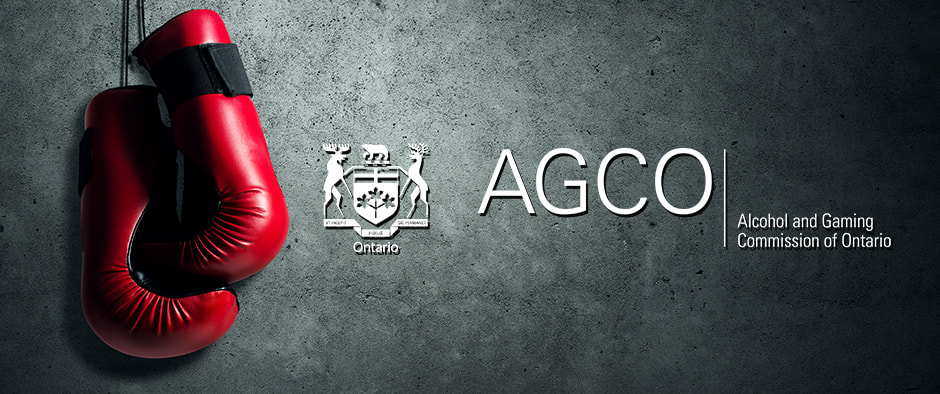Ontario Cracks Down on WBA Bets Due to Integrity Flaws
The Alcohol and Gaming Commission of Ontario (AGCO) has mandated an immediate halt on betting for World Boxing Association (WBA) events across Ontario operators. This strict measure follows increasing concerns over match-fixing and insider betting that question the integrity of WBA-sanctioned matches.

Introduction to AGCO’s New Directive
The Alcohol and Gaming Commission of Ontario (AGCO) has recently taken decisive action by issuing a directive that suspends all betting activities related to World Boxing Association (WBA) events throughout the province. This measure stems from serious concerns regarding the integrity of matches sanctioned by the WBA, fueled by allegations and evidence of match-fixing and insider betting.
AGCO’s directive serves as a protective measure to preserve the fairness and integrity of sports betting in Ontario. The decision was catalyzed by suspicious betting patterns observed during a title fight between Yoenis Tellez and Livan Navarro in Orlando, Florida. This bout drew attention for its unexpected outcomes and the significant wagers placed under unusual circumstances, casting doubts about the genuineness of the fight’s progression and results.
Yoenis Tellez KO10 vs Livan Navarro (15/12)
— Teats 🥊 (@teaton73) December 28, 2023
In response to these integrity issues, the AGCO conducted a thorough review that included consultations with independent integrity monitors and examinations of betting data provided by registered gaming operators in Ontario. These investigations confirmed the presence of irregular betting activities that aligned with concerns of potential match-fixing, prompting the immediate enforcement of the betting suspension.
The new standards the AGCO sets require that all sports governing bodies overseeing events that attract betting activities demonstrate robust measures to prevent insider betting and ensure match integrity. This policy not only impacts WBA but sets a precedent for all sports associations to enhance their supervisory and regulatory practices to meet Ontario’s stringent betting regulations.
Detailed Analysis of Match-Fixing Concerns and Notable Historical Cases
It’s not uncommon for sports enthusiasts to declare, “This match was definitely fixed!” when their favorite competitor loses. Indeed, tales of rigged boxing matches are not just urban legends—some hold truth. Yet, the reality is that not every match is predetermined, especially in high-stakes situations. Conversely, lower-tier matches may occasionally be manipulated.
Clarifying match-fixing and illicit betting: Match-fixing involves prearranging the outcome of a sporting event, which breaches both sporting regulations and legal standards. Illegal betting refers to placing bets on outcomes through unauthorized channels, often driven by monetary gain from criminal organizations.
In scenarios where match fixing occurs, competitors might perform below par on purpose, allowing their opponent to win. This type of manipulation varies depending on the competition’s format and might involve complex interactions between team officials, referees, and the betting syndicate.
🔺 SPECIAL INVESTIGATION: The sports agent jailed over the Pakistan cricket spot-fixing scandal has become a significant figure in professional boxing, working with the promoter who has the exclusive contract to deliver shows for Sky Sports
✍️ @trlkershaw & @Lawton_Times
— Times Sport (@TimesSport) January 13, 2024
Spot-fixing, another form of manipulation, targets specific aspects of a match rather than the overall result, enabling bets on these minor events. While it doesn’t affect the ultimate outcome, it introduces a level of unpredictability to the event.
Historical instances of match-fixing: Numerous match-fixing scandals have rocked the sports world, though not all have garnered media attention. One significant scandal emerged in 1913 when Arthur Pelkey confessed his involvement in a rigged match in Canada, pointing fingers at his manager, Tommy Burns. Another example occurred in 1939 when Harry Thomas admitted to throwing two bouts, casting a shadow over the sport’s integrity.
The recent Tellez vs. Navarro bout brought fresh scrutiny from the AGCO after observing odd betting patterns, leading to a thorough investigation that verified match-fixing suspicions. This investigation prompted the decisive action to suspend WBA betting in Ontario, underscoring AGCO’s dedication to upholding the integrity of sports betting by addressing these ingrained challenges.
Impact on Ontario Sports Betting Landscape
The recent directive from the Alcohol and Gaming Commission of Ontario (AGCO) to cease betting on World Boxing Association (WBA) events has sent ripples through the sports betting industry in Ontario. This decision, while aimed at safeguarding the integrity of sports, poses significant challenges for sportsbooks that have traditionally relied on boxing as a key component of their betting offerings. The immediate cessation of WBA betting means a potential loss of revenue for these operators, which could prompt a strategic re-evaluation of their market offerings.
Bettors who frequently engaged in wagering on WBA matches at USA betting sites are now faced with a narrower selection of betting options. This restriction may drive bettors to explore other sports or events, potentially affecting the betting volumes on less popular sports. On the other hand, it could lead to a concentration of bets on high-profile events, increasing the stakes and possibly the scrutiny of these remaining options. The shift in betting patterns could also prompt sportsbooks to enhance their offerings in other areas, diversifying beyond traditional sports to maintain or grow their customer base.
The AGCO’s decision will likely induce a significant transformation in the sports betting landscape in Ontario. As operators and bettors adapt to these changes, the industry might see innovations in betting products and strategies, potentially leading to a more diverse and robust betting environment. This evolution could set new standards for integrity and security in sports betting, aligning with the AGCO’s objectives to ensure a fair and reliable market for all participants.
Comparative Analysis with Other Regions
The Alcohol and Gaming Commission of Ontario’s (AGCO) recent suspension of WBA betting mirrors similar regulatory actions taken in other jurisdictions. For instance, the suspension and subsequent reinstatement of UFC betting in Ontario is a pertinent example. This earlier measure was introduced following concerns about integrity in UFC matches, and after a satisfactory resolution of these issues, betting was reinstated, reflecting a proactive and responsive regulatory framework.
‼️ The Alcohol and Gaming Commission of Ontario (AGCO) has halted betting on World Boxing Association (WBA) events, citing concerns about match-fixing and insider betting. With the UFC successfully addressing similar issues, the AGCO expects the WBA to demonstrate effective… pic.twitter.com/zS1LNMemQh
— FTTV Boxing (@FTTVBoxing) April 18, 2024
Comparatively, regulatory bodies have also implemented stringent measures when integrity concerns arise in jurisdictions like Nevada and New Jersey in the United States. These states have established protocols for temporarily suspending betting activities while investigations are conducted. The effectiveness of such suspensions has been noted in deterring illicit activities and maintaining public trust in the betting markets.
Moreover, similar actions have been observed in Europe, with the UK Gambling Commission and the Malta Gaming Authority taking decisive steps to suspend betting on sports events when any evidence of match-fixing is detected. These actions not only prevent immediate harm but also serve as a deterrent for future violations, ensuring that sports betting remains a fair and enjoyable activity for all stakeholders.



